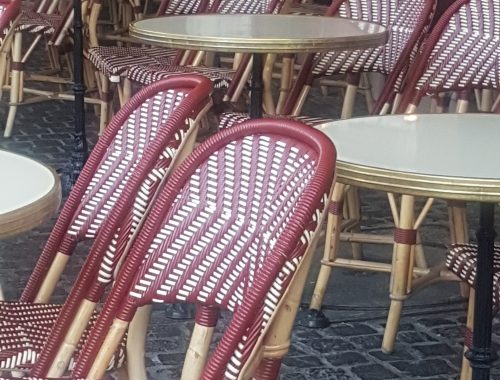
Yvette Lundy & The Possum Escape Line
This week, Yvette Lundy, heroine of the french resistance passed away aged 103. Yvette grew up in Oger, a champagne region near Reims. Born into an ordinary farming family, the youngest of seven, Yvette spent her childhood in the countryside. Had the second world war not interrupted life, her story would have been the same as hundreds of others.
The Possum Network
During the French occupation she supplemented her teaching salary with a role at the local town hall as secretary to the mayor. It was in this role that she became a key figure in the resistance network known as the Possum Escape Line. Working alongside communist, Marcel Nautré and other resistance fighters she saved hundreds of lives. Her position enabled her to create false papers for Jews, members of the resistance and those who had been ear marked for slave labour in Nazi camps and factories.
Her sister Berthe, along with older brothers, Georges and Lucien all became involved. Free French resistance fighters who had been parachuted into the region were smuggled to safety, hidden on the family farm. Yvette described their actions as “Honest trickery.” The Lundy family paid a high price for their lack of self regard.
Torture and Arrest
The SS eventually caught up with Yvette on a warm summer’s day in June 1944. Storming her small Epernay classroom, the Gestapo arrested her in front of her students. She was taken away and interrogated. Yvette described the impact of being discovered and tortured “The body is naked and the brain is suddenly in tatters. You’re like a hole, a hole full of emptiness, and if you look around it’s more emptiness”. Her interrogation lasted for an entire month.
Designated prisoner 47,360 she was deportated to Ravensbrück, a concentration camp for women, north of Berlin. One of over 130,000 prisoners, only 15,000 would survive their internment. The Nazi war machine swiftly moved Yvette to Buchenwald, subjecting her to forced labour in an armaments factory. A year later, liberation by the Red Army took place in 1945. Berthe and Lucien survived the camps. Georges did not. He died in Schörzingen concentration camp.
Yvette Lundy: A Powerful Call
Memories of her experience in the death camps never left Yvette. Years after liberation, she described being haunted by the horrors every day, mostly at night. In an interview with Le Parisien, she stated “I will never forget the screams and cries in the night from the women who no longer had their children.”
The spectre of those atrocities weighed heavily upon her. It wasn’t until 15 years later that she broke her silence and began talking about her experience. In partnership with the French Education Department, she started going into schools to share her story. She spoke about the rise of the far right and the dehumanisation that accompanied it. Her testimony was one of hope and reconciliation, aiming to bring French and German students together.
Le Fil de l’araignée (The Spider’s Web)
In 2012 Yvette wrote her memoir, Le Fil de l’araignée detailing how she had become caught up in the horrors of war. Her story inspired the director, Tony Gatlif’s character Mademoiselle Lise Lundi in the film, Korkoro. At 101 her bravery was recognised with the award of Grand Officier de la Légion d’honneur in 2017.
Yvette died in Epernay on 4th November 2019. The office of President Emmanuel Macron stated “The words of Yvette Lundy were a powerful call for citizen vigilance, so that the darkest hours of the 20th century would never be repeated”
Sometimes, when I read about a violent period in history, I wonder. What would I do? We’d all like to think that we would access hidden reserves of inner strength, but research into group behaviour suggests otherwise. Hannah Arendt’s work examining group conformity tells a different story. Her infamous quote about the “Banality of evil” as she reported on the war crimes of Adolf Eichmann for the New Yorker described the mundane compliance of the majority.
Nobody wants to be marginalised so they go along with the new status quo, however horrifying they initially find it. Today’s brave declaration of support whilst free is tomorrow’s foot shuffling, avoidance of eye contact in a baying crowd. The Yvette Lundy’s of the world are outliers. They stand on the periphery. Her legacy was this “Always ask: Where are we going? Each and every one of us has a responsibility, regardless of how young we are.”

Paris Street Art

Aux Merveilleux!
You May Also Like

The French Cafe: Endangered Species?
October 5, 2019
La Belle Epoque & Anarchy
August 17, 2019